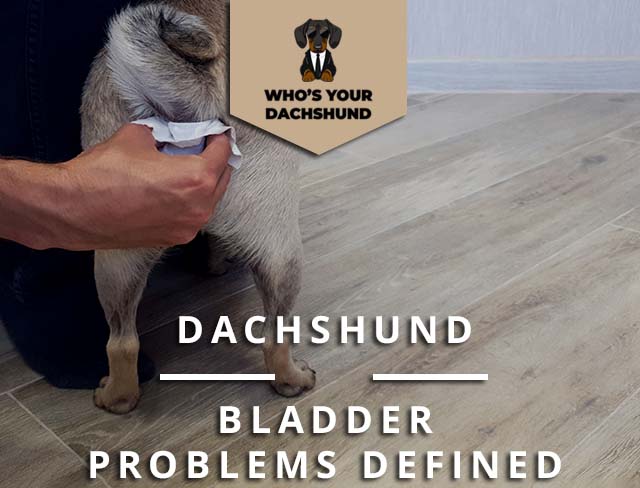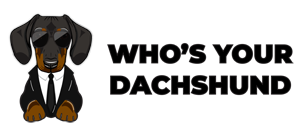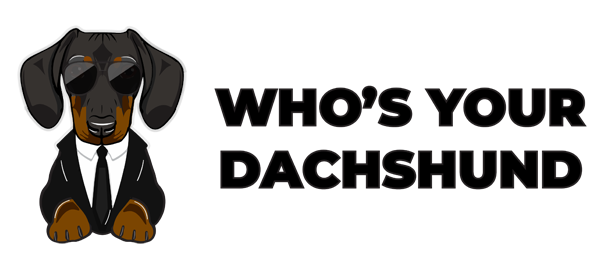
Dachshund bladder problems are caused by frequent urination, usually when the dog is resting or sleeping. The dog may also drag its legs when moving and experience lethargy. To rule out other possible causes, your vet will need to perform a urinalysis to check for urine infection and crystals.
You can prevent Dachshund bladder problems by providing your dog with plenty of exercise and drinking lots of water. The vet may also prescribe medicine in some cases.
Signs: – Random urination and excessive thirst. Their bladder may feel full even when not in the heat of the moment, causing them to urinate more frequently. If the problem is caught early and the dog is given medications, there should be no further problems.
Dachshund Urinary Anomaly
Dachshunds can tend to cut their feet on wire grating, toys, and other objects. There may be more than one of these cuts, each straight and small enough to be easily missed. The puppy will cry and have a limp. If it is caught early and treated, the problem should resolve within a few days. If your dog exhibits any of these signs after vaccination, consult your veterinarian.
What Can You Do to Limit Issues?
If you have a Dachshund prone to these urination issues, try to prevent them by providing your dog with plenty of exercise and water. If your dog isn’t allowed to run around and play, check if there are any toys in the house he can play fetch with or chew on, such as stuffed toys. You may also try putting a toy or bed at the end of every day’s walk, so he has something to play with during his playtime.
Dachshunds do best when they have their own space. Crates and kennels are fantastic for giving them the ability to get away, especially if it is a rainy or cold day and do not want to go outside. Also, crate training can help you by giving you a sense of security that your dog is not getting into things that should not be accessible to him. We always recommend that you never leave your dog alone in a crate or kennel.
Dachshund Urinary Tract Infection
Dachshunds may have occasional urinary tract infections (UTIs) if they do not have a free-flowing bladder. If you notice your dog acting unusually, it is crucial to ask your vet if it is a UTI sign. If he is having difficulty urinating or passing urine, you should immediately take him to the vet. You can also check for pain, curving of the back, and straining.
What Can You Do to Prevent This?
The best way to prevent UTIs in your dog is by ensuring he regularly gets hydrated. It is more important for male dogs to become dehydrated very quickly. Having a free-flowing bladder will help him avoid forcing himself, which can cause issues.
Many things can upset a Dachshund’s bladder. It is essential to get its bladder checked regularly for stones, cysts, infections, and urinary tract conditions. Recognizing the warning signs of such conditions can help prevent further issues. If your Dachshund displays any of these symptoms, check for pain when urinating or straining, blood in the urine, and a complete lack of urine output. Bringing it to the vet is the most reliable way to determine why he is not passing his bladder.
Dachshund Urinary Incontinence
Urinary incontinence is an issue that affects Dachshunds and other dogs, including terriers, often at times of stress or arousal. It can also be caused by older age. If your dog is experiencing this issue, he will most likely avoid going to the bathroom, leading to severe dehydration and inadequate urination.
What Can You Do to Prevent Issues?
If you notice your dog acting unusually, it is essential to ask your vet if it is a UTI sign. If he is having difficulty urinating or passing urine, you should immediately take him to the vet. You can also check for pain, curving of the back, and straining.
If your dog is asymptomatic but appears bloated after his next urination or has blood in his urine, it may warrant a visit to the vet. In the event, your dog exhibits any of these symptoms after vaccination, please call your veterinarian.
Causes of Urinary Incontinence in Dogs
The most common causes of urinary incontinence in dogs are neurologic, anatomic, and idiopathic. The most commonly seen neurologic causes of urinary incontinence are diabetes, spinal cord disease, urinary tract infections (UTI), and seizures. Anatomic causes of this issue may be related to decreased control over the bladder lumen (bladder neck strength) or decreased control over the urethra (urethral sphincter tone).
Idiopathic is a condition that has no known cause. Idiopathic urinary incontinence is not usually life-threatening but can be very frustrating for the owner.
Symptoms of Urinary Incontinence in Dogs
- Leakage of urine that is not associated with urination
Leakage of urine that is not associated with urination or urination can be a symptom of urinary tract issues. It can range from minor issues to more severe issues.
When dogs act as if something is wrong with them, they may only have one or two instances of leakage before going back to normal. It is essential to understand that in most cases when the dog experiences a little urinary leakage after vaccination, it will go back to normal soon after the next vaccination.
- Urine leaking that is associated with urination
Urine leaking associated with urination will usually begin after the dog is wholly void of urine and may be caused by incontinence, a weak bladder sphincter (weak urinary control), or dribbling after urination.
If your dog is experiencing urinary leakage issues, it is vital to take them to the vet right away to determine the cause. Early diagnosis can lead to treatment and a better quality of life for your dog.
- Urinating at inappropriate times or places
It is a common symptom of dogs with incontinence. Dogs that suffer from incontinence will not hold their bladder when the urge hits and will urinate at inappropriate times.
- Frequent urination–more than eight times in 24 hours
It is usually a sign of a UTI. Dogs with this issue often suffer urinary leakage and frequent urination, which can become excessive overtime.
- Frequent urination and wetting the bed while sleeping
It is a sign of a UTI. Dogs with this issue will often urinate in their sleep and wet the bed while sleeping.
- Reduced or absence of guarding and marking
Dogs experiencing incontinence cannot control when they urinate or how much they urinate. They may reduce total urine volume, and some dogs stop marking altogether as their bladder can’t hold any more urine.
- Abnormal urine color- dark yellow, green, orange, or red
Normal urine is clear. Dogs that are urinating more often or earlier than usual will have a darker color and smell of their urine.
- Unpleasant odor from the fur around the anus
It is an indication of incontinence and helps indicate where it is coming from. Dogs that are urinating less often will notice an unpleasant odor in the fur around their anus. The longer the dog goes without urinating, the more concentrated and strong-smelling the urine is.
If your pup has not yet been taught to use the bathroom, then you ought to take him to the vet right away. Remember that it is essential to have regular veterinary checkups regularly to identify and monitor any health issues from an early stage. As in all situations, communication between the pet owner and veterinarian helps ensure your pets’ best quality of life.
Crate training is an excellent way to alleviate many of the problems above. It reduces the risk of UTI and incontinence, which are both issues that can be difficult to handle. It also helps ensure that your dog isn’t getting into things he shouldn’t be and keeps him away from wires/electrical cords and other harmful things like chemicals and cleaners. Crate training takes time, so it is essential to start your training when your puppy is young for him to get used to it.
When you are crate training, you should also focus on positive reinforcement. If the dog urinates in its crate or creates other messes in the crate, do not punish it, rather clean up the mess. It is essential to avoid showing your dog that it will be punished for making a mess. It needs to understand that creating a mess in the crate will result in cleaning. When your dog uses the bathroom outside, make sure you reward it. After a time, your dog will be more likely to go where you want as long as you keep up with this process.
Suppose you take your dog out every 3-4 hours when at home or for toilet breaks, and he also has a playpen to run around in when you are at work. Crate training will help prevent them from going to the bathroom in other places when they are not outside.
Another way to prevent UTIs is to ensure that your dog has plenty of water and exercise. If you are concerned, you can also feed your dog ‘wet’ food, but make sure you always do this under your veterinarian’s supervision. Also, there are some dog food and dietary supplements that you can feed your dog to help prevent UTI.
If you notice your dog has a hard time passing urine or looks as if he is straining, take him to the vet immediately. Bleeding from the bottom could indicate a more severe issue such as hematuria, bleeding in the urine. Bleeding from the base of the penis could mean that your dog has a urinary blockage.
Foods you must Avoid to Prevent Your Dachshund Having UTI.
Foods you must avoid to prevent UTI (urinary tract infection) in your Dachshund.
- Salty Foods
Foods high in salts, such as bacon, ham, and corned beef, can cause bladder stone to develop in your Dachshund. Not only will this cause UTI, but it could also cause death.
- Caffeine
The caffeine found in tea, coffee, and chocolate can irritate the bladder and lead to a frequent urge to urinate, which increases the bladder’s overdistension, which can eventually lead to UTI.
- Alcoholic Drinks
Drinks such as wine and beer contain alcohol which is responsible for irritating the kidneys, causing frequent urination, which of course, then leads to UTI.
- Hot Spicy Foods
Eating spicy foods can irritate the bladder and cause frequent urination, a UTI sign.
- High Salt Meals
High salt meals that are higher in salt than the recommended daily allowance can lead to bladder stones and UTI.
- Low Fiber Meals
High fiber diets such as those containing white bread, rice cakes, and cereals can cause constipation or irritate the intestines causing the frequent urge to urinate, which increases the bladder’s overdistension, which can eventually lead to UTI.
Low Fiber Meals to Avoid
- White Rice
- Bread such as white and brown bread
- Potatoes, pasta, and noodles
- Cereals such as porridge, corn flakes, and rice crispies
- Raw Meaty Bones
Uncooked bones or raw meaty bones can cause perforation of the intestinal wall or cause a blockage in the intestines, leading to constipation, leading to the urge to urinate, which increases overdistension of the bladder, which can eventually lead to UTI.
Chips and Crisps
Chips and crisps contain trans fat, which can irritate the bladder, leading to a frequent urge to urination, which increases the bladder’s overdistension, which can eventually lead to UTI.
Doughnuts
Baked doughnuts that are high in sugar and other sweeteners can cause a build-up of bacteria in the bladder, leading to constipation or irritate the intestines causing the frequent urge to urinate or increase urinary tract infection.
Cranberry Juice
Cranberry juice is high in sugar, leading to constipation or irritating the intestines, causing the frequent urge to urinate or increase urinary tract infection.

